Disk OK
Posted: January 10, 2011
Threat Metric
The following fields listed on the Threat Meter containing a specific value, are explained in detail below:
Threat Level: The threat level scale goes from 1 to 10 where 10 is the highest level of severity and 1 is the lowest level of severity. Each specific level is relative to the threat's consistent assessed behaviors collected from SpyHunter's risk assessment model.
Detection Count: The collective number of confirmed and suspected cases of a particular malware threat. The detection count is calculated from infected PCs retrieved from diagnostic and scan log reports generated by SpyHunter.
Volume Count: Similar to the detection count, the Volume Count is specifically based on the number of confirmed and suspected threats infecting systems on a daily basis. High volume counts usually represent a popular threat but may or may not have infected a large number of systems. High detection count threats could lay dormant and have a low volume count. Criteria for Volume Count is relative to a daily detection count.
Trend Path: The Trend Path, utilizing an up arrow, down arrow or equal symbol, represents the level of recent movement of a particular threat. Up arrows represent an increase, down arrows represent a decline and the equal symbol represent no change to a threat's recent movement.
% Impact (Last 7 Days): This demonstrates a 7-day period change in the frequency of a malware threat infecting PCs. The percentage impact correlates directly to the current Trend Path to determine a rise or decline in the percentage.
| Threat Level: | 10/10 |
|---|---|
| Infected PCs: | 16 |
| First Seen: | January 10, 2011 |
|---|---|
| Last Seen: | August 17, 2022 |
| OS(es) Affected: | Windows |
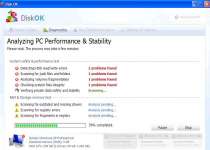 Disk OK is a rogue defragmenter program that fakes various helpful system maintenance features while attacking your computer's applications and file visibility settings. Disk OK's system alerts only offer lies about your system integrity, and you should have no qualms about removing Disk OK from your PC as soon as you catch Disk OK on-board. Since Disk OK and similar rogue security programs are often dropped onto new computer systems by Trojans, you should also take care to find and deal with any related malware, in addition to Disk OK.
Disk OK is a rogue defragmenter program that fakes various helpful system maintenance features while attacking your computer's applications and file visibility settings. Disk OK's system alerts only offer lies about your system integrity, and you should have no qualms about removing Disk OK from your PC as soon as you catch Disk OK on-board. Since Disk OK and similar rogue security programs are often dropped onto new computer systems by Trojans, you should also take care to find and deal with any related malware, in addition to Disk OK.
Disk OK: Not So OK for Your Computer
Rogue defragmenters in the Disk OK family are numerous and go by many different names, but use similar attacks on your PC. Some relatives of Disk OK include Fast Disk, My Disk, Good Memory, Win Scanner, HDD OK and HDD Rescue. Disk OK and all other defraggers related to Disk OK will promptly spill out a virtual cornucopia of false system alerts.
Here are some of the errors you may see as a result of Disk OK's presence on your PC:
System Restore
The system has been restored after a critical error. Data integrity and hard drive integrity verification required.
Requested registry access is not allowed. Registry defragmentation required
32% of HDD space is unreadable
Bad sectors on hard drive or damaged file allocation table
Read time of hard drive clusters less than 500 ms
Windows detected a hard drive problem.
A hard drive error occurred while starting the application.
Data Safety Problem. System integrity is at risk.
Ram Temperature is 83 C. Optimization is required for normal operation.
GPU RAM temperature is critically high. Urgent RAM memory optimization is required to prevent system crash
Drive C initializing error
Hard drive doesn’t respond to system commands
Registry Error – Critical Error
Critical Error
A critical error has occurred while indexing data stored on hard drive. System restart required.
Not only are these errors highly inaccurate, many of them are unrealistic and would make your computer unable to function! Disk OK will tell you that these problems can't be fixed unless you register for the full version of Disk OK, which, naturally, costs money. Instead, you'll be better off if you just remove Disk OK and enjoy the peace and quiet of a computer that isn't plagued by senseless error pop-ups.
Making Everything 'OK' Again
Disk OK may also hide your files or make it appear as though they've been moved to different folders; this attack is purely on the visual interface, and doesn't hurt the files themselves. If you use an alternative method to access the files, such as a command line, you'll be able to tell that your files are all right where they were in the first place.
Disk OK may also stop programs from running and display an error like the one you can see below:
Windows cannot find [executable file]. Make sure you typed the name correctly, and then try again. To search for a file, click the Start button, and then click Search.
To put a halt to all of Disk OK's attacks, revert to Safe Mode, which will stop Disk OK from launching and attacking your PC while Disk OK keeps on running in the background. You can finish Disk OK off by running a full system scan to remove Disk OK and any other malware that might be on your computer. Save yourself some time and update whatever scanner you choose to use before you run the scan, since Disk OK isn't that old as far as rogue security programs go, and may avoid detection by less up to date scanning software.
Technical Details
File System Modifications
Tutorials: If you wish to learn how to remove malware components manually, you can read the tutorials on how to find malware, kill unwanted processes, remove malicious DLLs and delete other harmful files. Always be sure to back up your PC before making any changes.
The following files were created in the system:%ALLUSERSPROFILE%\Application Data\zhhJ9qbh5Mht.exe
File name: zhhJ9qbh5Mht.exeSize: 381.44 KB (381440 bytes)
MD5: 79850a200781e8de6823ce8e501450ce
Detection count: 61
File type: Executable File
Mime Type: unknown/exe
Path: %ALLUSERSPROFILE%\Application Data
Group: Malware file
Last Updated: January 10, 2011
%ALLUSERSPROFILE%\Application Data\HAxHiltNLTtQl.dll
File name: HAxHiltNLTtQl.dllSize: 425.98 KB (425984 bytes)
MD5: 7c7427e37c85d4e269c3ad47d9591293
Detection count: 53
File type: Dynamic link library
Mime Type: unknown/dll
Path: %ALLUSERSPROFILE%\Application Data
Group: Malware file
Last Updated: January 10, 2011
%ALLUSERSPROFILE%\Application Data\GXADAOEbUaHOS.exe
File name: GXADAOEbUaHOS.exeSize: 476.16 KB (476160 bytes)
MD5: 988d2dd020a97506e6e7aae9b0d81d4e
Detection count: 5
File type: Executable File
Mime Type: unknown/exe
Path: %ALLUSERSPROFILE%\Application Data
Group: Malware file
Last Updated: August 17, 2022
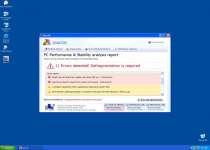
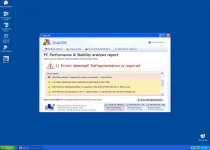
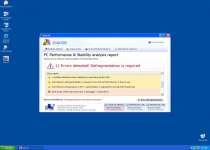
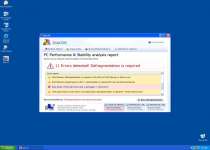
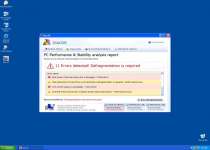
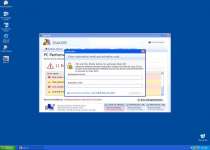
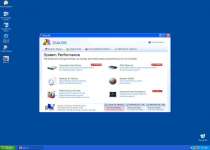
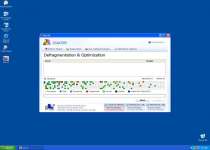
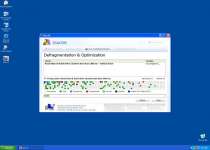
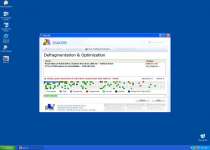
Leave a Reply
Please note that we are not able to assist with billing and support issues regarding SpyHunter or other products. If you're having issues with SpyHunter, please get in touch with SpyHunter customer support through your SpyHunter . If you have SpyHunter billing questions, we recommend you check the Billing FAQ. For general suggestions or feedback, contact us.